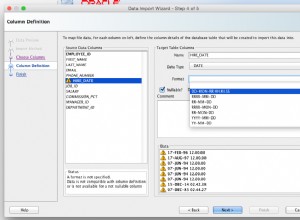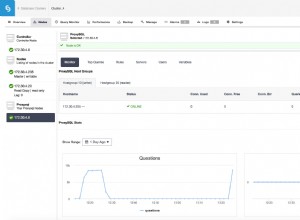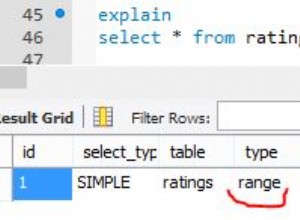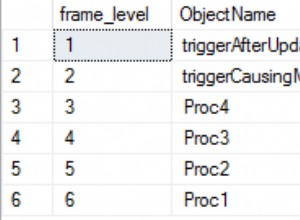Il modo migliore per farlo secondo me è usare le espressioni regolari o SED/AWK per formattare tutto, ci dà il bonus di sostituire le mappe al volo. Tuttavia, la possibilità che tu possa avere errori di codice è alta, quindi è piuttosto difficile.
fammi lavorare un po' su di esso e posso vedere se riesco a trovare una buona soluzione. È garantito che stai incapsulando tutte le virgolette SQL?
MODIFICA
Prova questo
cd {{directory}} && find . -type f -print0 |
xargs -0 perl -i.bak -pe 's/select/SELECT/g ; s/from/\n\tFROM/g ; s/where/\n\t\tWHERE/g ; s/and/\n\t\tAND/g ; s/order by/\n\t\tORDER BY/g ; s/asc/ASC/g ; s/desc/DESC/g ;'
Ecco un esempio
$ printf '"select * from whatever where this = that and active = 1 order by something asc";\n' |
> perl -pe 's/select/SELECT/g ; s/from/\n\tFROM/g ; s/where/\n\t\tWHERE/g ; s/and/\n\t\tAND/g ; s/order by/\n\t\tORDER BY/g ; s/asc/ASC/g ; s/desc/DESC/g ;'
"SELECT *
FROM whatever
WHERE this = that
AND active = 1
ORDER BY something ASC";
È carino? no, per niente, funziona... Già.
Proverò a creare un file di filtro e forse un piccolo programma bash o qualcosa del genere mentre avrò tempo per eseguire questo pasticcio caldo.
MODIFICA
Ecco del codice rivisto, sembra più carino (sorta)
printf '$request1 = "select * from whatever where this = that and active = 1 order by something asc";\n' |
perl -pe 's/select/SELECT/gi ; s/from/\n FROM/gi ; s/where/\n WHERE/gi ; s/and/\n AND/gi ; s/order by/\n ORDER BY/gi ; s/asc/ASC/gi ; s/desc/DESC/gi ;' |
awk 'NR == 1 {pad = length($0)/2; print} NR > 1 {gsub(/\r/,""); printf "%*s%s\n", pad, " ", $0}'
__OUTPUTS__
$request1 = "SELECT *
FROM whatever
WHERE this = that
AND active = 1
ORDER BY something ASC";




